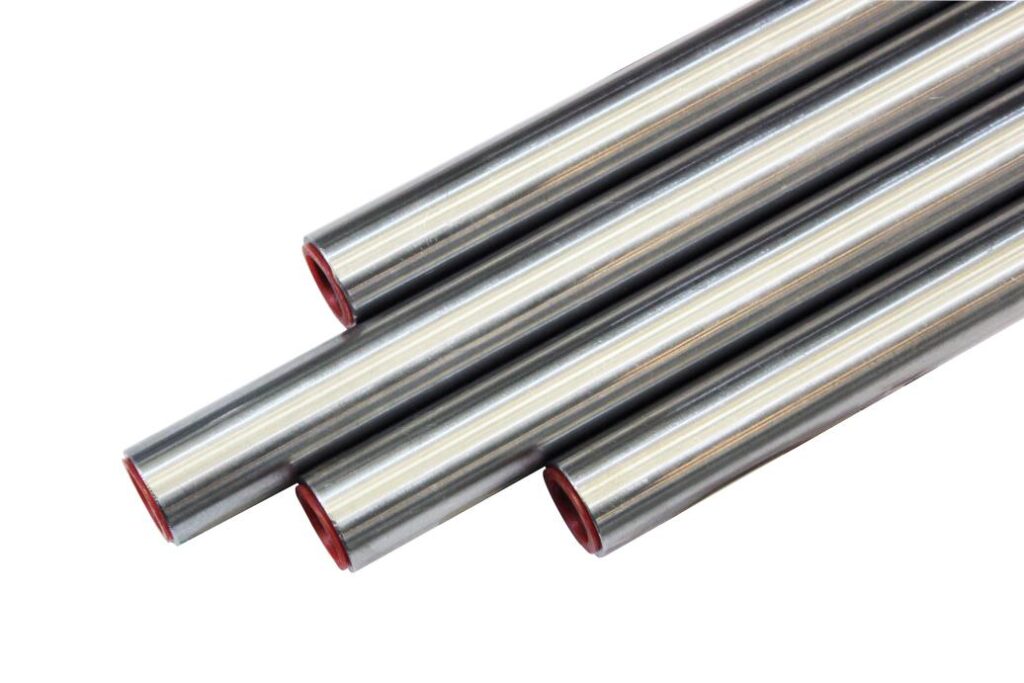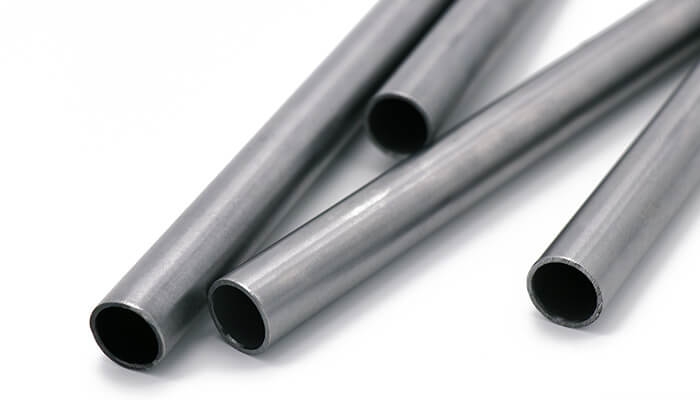Hydraulic Steel Pipes vs. Other Materials: Which Is Best For You?
-
2023-04-18
-
When it comes to selecting the best pipe material for your industrial applications, there are many options available on the market. Some of the most commonly used materials include PVC, copper, and hydraulic steel pipes.
In this article, we will compare hydraulic steel pipes to these other materials and help you determine which one is best suited for your business.

Hydraulic Steel Pipes: The Pros And Cons
Hydraulic steel pipes are widely used in various industries due to their strength, durability, and resistance to high pressures and temperatures. Some of the advantages of hydraulic steel pipes include:
- High Strength and Durability:
Steel pipes are known for their exceptional strength and durability, which make them ideal for use in heavy-duty applications.
- Resistance to Corrosion and Abrasion:
Hydraulic steel pipes are highly resistant to corrosion and abrasion, which makes them suitable for use in harsh environments where other materials might not hold up as well.
- High Pressure and Temperature Resistance:
Hydraulic steel pipes are designed to withstand high pressure and temperature conditions, which makes them a reliable option for hydraulic systems.
However, there are also some drawbacks to using hydraulic steel pipes:
- Higher Cost:
Compared to other materials such as PVC, hydraulic steel pipes tend to be more expensive, which can make them less appealing to businesses looking to save on costs.
- Difficult to Install:
Hydraulic steel pipes require more specialized equipment and expertise to install, which can add to the overall installation costs. However, compared with the benefits they bring, these initial investment costs are worthwhile.
However, it is more important to find a mature and professional manufacturer for better quality hydraulic steel pipes, which will be recommended for you below.
PVC Pipes: The Pros And Cons
PVC pipes are commonly used in industrial applications due to their affordability and ease of installation. Some of the advantages of PVC pipes include:
- Low Cost:
PVC pipes are one of the most affordable pipe materials available, which makes them a popular choice for businesses looking to save on costs.
- Easy to Install:
PVC pipes are relatively easy to install, which can save businesses time and money on installation costs.
However, there are also some disadvantages to using PVC pipes:
- Limited Strength and Durability:
PVC pipes are not as strong or durable as steel pipes, which can limit their use in heavy-duty applications.
- Limited Temperature and Pressure Resistance:
PVC pipes are not designed to withstand high pressure or temperature conditions, which makes them less reliable for use in hydraulic systems.
Copper Pipes: The Pros And Cons
Copper pipes are known for their durability and resistance to corrosion, making them a popular choice for plumbing and HVAC applications. Some of the advantages of copper pipes include:
- High Durability:
Copper pipes are extremely durable and resistant to corrosion, which makes them suitable for long-term use.
- Good Heat Transfer Properties:
Copper pipes have excellent heat transfer properties, which make them ideal for use in HVAC systems.
However, there are also some drawbacks to using copper pipes:
- Higher Cost:
Copper pipes tend to be more expensive than PVC pipes, which can make them less attractive to businesses looking to save on costs.
- Limited Strength:
Copper pipes are not as strong as steel pipes, which can limit their use in heavy-duty applications.
Which Material Is Right For Your Business?
When it comes to selecting the best pipe material for your business, there are several factors to consider, including cost, durability, and application requirements. Here are some key takeaways to keep in mind when making your decision:
- If you need a pipe material that is strong, durable, and resistant to high pressures and temperatures, hydraulic steel pipes are the best option.
- If you are looking to save on costs and need a pipe material that is easy to install, PVC pipes may be a good choice. However, keep in mind that they are not as strong or durable as steel pipes.
- If you need a pipe material that is durable and resistant to corrosion, copper pipes may be a good choice. However, keep in mind that they are more expensive than PVC pipes and not as strong as steel pipes.
Ultimately, the best pipe material for your business will depend on your specific application requirements and budget. If you are unsure which option to choose, it may be helpful to consult with a professional (such as the Global Precision Steel Tube) to help you make an informed decision.
Better-Quality Hydraulic Steel Pipes Are Available In Global Precision Steel Tube:
When it comes to hydraulic steel pipes, quality is key. Global Precision Steel Tube is a professional manufacturer of high-quality steel tubes, including the SAE J524 Bright Precision Carbon Steel Pipe. Here are three key advantages of this product:
1) High Dimensional Accuracy and Excellent Finish:
The SAE J524 Bright Precision Carbon Steel Pipe is cold drawn and cold rolled, resulting in high dimensional accuracy and excellent internal and external wall finish. This ensures that the pipe will perform reliably in high-pressure hydraulic systems.

2) Eddy Current Testing for Quality Assurance:
To ensure product quality, each steel pipe is tested by eddy current flaw detection. This non-destructive testing method detects any surface or subsurface flaws that could compromise the integrity of the pipe.
3) Anaerobic Bright Heat Treatment (NBK) for Optimal Properties:
The SAE J524 Bright Precision Carbon Steel Pipe is annealed using anaerobic bright heat treatment. This process maintains the original rolling accuracy and smoothness of the steel pipe, resulting in excellent mechanical properties and metallographic structure. The pipe is protected during heating by injecting ammonia-decomposed nitrogen and hydrogen, which ensures the highest quality end product.
Final words:
In conclusion, when comparing hydraulic steel pipes to other pipe materials such as PVC and copper, it is clear that each material has its own advantages and disadvantages. Hydraulic steel pipes are the strongest and most durable option, while PVC pipes are the most affordable and easy to install. Copper pipes are durable and resistant to corrosion, but are more expensive than PVC pipes and not as strong as steel pipes.
When selecting the best pipe material for your business, it is important to consider your specific application requirements and budget, as well as the strengths and weaknesses of each option.
If you want a more specific solution, you can directly ask the customer service team or sales team of Global Precision Steel Tube, they will help you make a more specific plan or customize an order.



